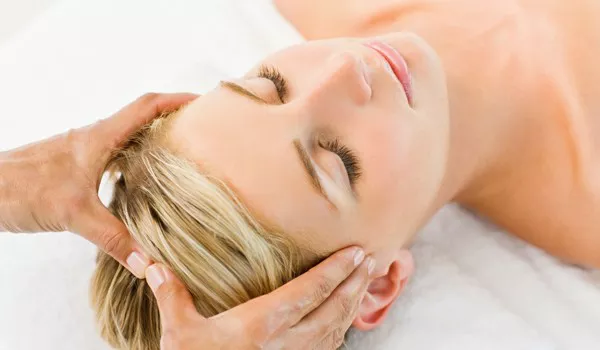A dry scalp can be a source of discomfort, itchiness, and even embarrassment. Understanding the causes and adopting a proper care routine is crucial in alleviating these issues. In this detailed guide, we will explore effective ways to nurture and heal a dry scalp, restoring balance and comfort.
Understanding the Dry Scalp Dilemma: Causes and Symptoms
Before diving into the solutions, it’s essential to understand the causes and symptoms of a dry scalp. Factors such as weather conditions, improper hair care, and underlying skin conditions can contribute to dryness. Recognizing the signs early allows for targeted and effective care.
1. Hydrating Shampoos and Gentle Cleansing
Sulfate-Free Shampoos:
Initiate your dry scalp care routine with sulfate-free shampoos. Sulfates can strip the scalp of natural oils, exacerbating dryness. Opt for hydrating shampoos with ingredients like aloe vera or tea tree oil to soothe and moisturize the scalp.
Gentle Cleansing Techniques:
When washing your hair, be gentle with your scalp. Avoid vigorous scrubbing, as this can worsen dryness and irritation. Massage your scalp with the tips of your fingers, promoting blood circulation without causing additional trauma.
2. Moisturizing Conditioners and Hair Masks
Deep Moisturizing Conditioners:
Invest in moisturizing conditioners to hydrate both your hair and scalp. Apply conditioner generously, focusing on the lengths and ends. Leave it on for a few minutes to allow the moisture to penetrate the scalp and hair follicles.
DIY Scalp Masks:
Enhance your care routine with DIY scalp masks. Ingredients like honey, yogurt, and aloe vera can be combined to create nourishing masks that hydrate the scalp and alleviate dryness. Apply these masks weekly for optimal results.
3. The Benefits of Oils for Scalp Health
Essential Oils for Dry Scalp:
Introduce essential oils into your routine to soothe and nourish the scalp. Tea tree oil, lavender oil, and rosemary oil have antimicrobial properties and can provide relief from itchiness. Mix a few drops with a carrier oil and massage it into your scalp.
Hot Oil Treatments:
Incorporate hot oil treatments into your routine to infuse your scalp with moisture. Warm olive oil, coconut oil, or jojoba oil and apply it to your scalp. Cover your head with a shower cap and let the heat enhance the oil’s penetration, promoting hydration.
4. Scalp Exfoliation: Removing the Buildup
Gentle Exfoliation Techniques:
Periodically exfoliate your scalp to remove dead skin cells and product buildup. Use a scalp scrub or create a DIY scrub using ingredients like sugar or oatmeal. Gently massage it into your scalp during your shower routine to promote a healthier scalp environment.
Clarifying Shampoos:
Consider using a clarifying shampoo once a month to deep-cleanse your scalp. This helps remove stubborn residue and allows your hair follicles to breathe, preventing further dryness.
5. Adjusting Hair Washing Frequency
Balancing Washes:
Find a balance in your hair washing routine. Washing too frequently can strip your scalp of its natural oils, while infrequent washing may lead to product buildup. Tailor your routine to your hair type and lifestyle, aiming for a balance that maintains cleanliness without causing excessive dryness.
Cold Water Rinses:
Finish your hair wash with a cold water rinse. Cold water seals the hair cuticle, reducing frizz and locking in moisture. Although it may be uncomfortable, the benefits for your scalp’s hydration are significant.
6. Dietary Considerations for Scalp Health
Hydrating from Within:
Ensure you are staying hydrated by drinking an adequate amount of water daily. Hydration from within contributes to the overall health of your scalp and skin. Consider incorporating foods rich in omega-3 fatty acids, vitamins, and antioxidants into your diet to support scalp health.
Supplements for Scalp Nourishment:
Consult with a healthcare professional about adding supplements like biotin, vitamin E, or fish oil to support scalp health. These supplements can provide additional nourishment to your hair and scalp from the inside out.
7. Stress Management and Its Impact on Scalp Health
Understanding the Mind-Scalp Connection:
Recognize the connection between stress and scalp health. High-stress levels can contribute to scalp issues like dandruff and dryness. Incorporate stress-management techniques such as meditation, yoga, or deep breathing exercises into your routine.
Scalp Massages for Relaxation:
Enjoy regular scalp massages not only for physical benefits but also for relaxation. Massaging your scalp can improve blood circulation, reduce stress, and promote the release of natural oils that contribute to scalp hydration.
Conclusion: Nurturing Your Scalp Back to Health
In conclusion, caring for a dry scalp requires a holistic approach that addresses various factors contributing to its dryness. By adopting a proper hair care routine, incorporating hydrating products, and making lifestyle adjustments, you can nurture your scalp back to health.
Consistency is key in the revival process. Embrace the journey of restoring balance to your scalp, and revel in the comfort and confidence that comes with a well-nourished and hydrated head. Your scalp deserves the same level of care as the rest of your body, and with the right steps, you can enjoy a healthier, more comfortable scalp.

